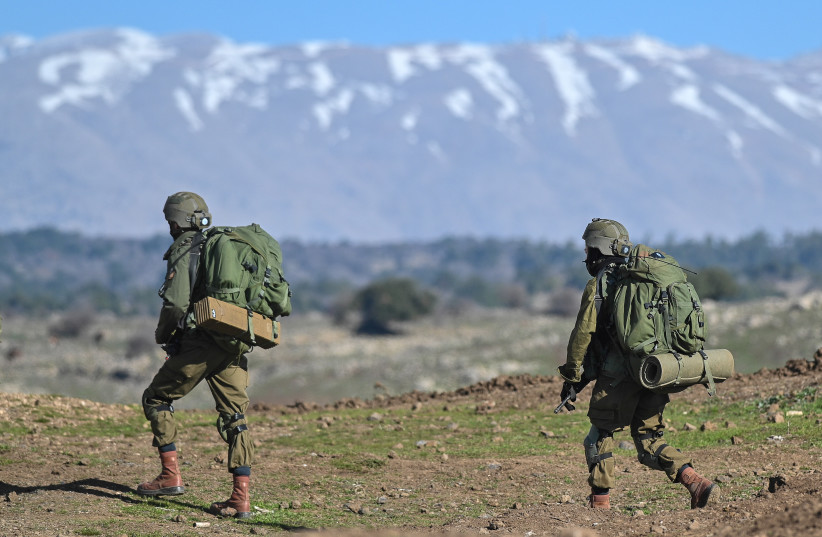Four officers in the Israeli military have died in tragic accidents in under a week. It seems that in the New Year, tragedy is chasing tragedy in the IDF.
Last week two Israel Air Force pilots, Maj. Chen Fogel and Lt.-Col. Erez Sachyani, died when their helicopter crashed into the Mediterranean just off the coast of Haifa.
Late last night, Maj. Ofek Aharon and Maj. Itamar Elharar were killed by another officer in the same elite Egoz commando unit who was nearby and misidentified the officers as possible terrorists.
It is an awful way to start 2022, and an awful beginning to Chief of Staff Lt.-Gen. Aviv Kohavi’s last year in office.
The two tragedies follow data released by the military showing a slight rise in the number of casualties in 2021, with 31 soldiers losing their lives compared with 28 in 2020.

Whenever you speak with the chief of staff, it is clear that the welfare of soldiers is one of his top concerns. That four officers have been killed in less than a week will surely push him to thoroughly investigate both incidents.
He must, because not only is there already a decrease in motivation to join the military, especially combat units, but public trust in the IDF has decreased over the past year, with only 78% of Jewish Israelis saying that they had “very much or quite a lot” of trust in the military. For comparison, 90% of Jewish Israelis said they trusted the army just two years earlier.
If people don’t trust the military, why would they send their sons and daughters to join combat units and put their lives at risk?
The preliminary investigation into the helicopter tragedy has found that a fire broke out in the left engine, causing a power failure and causing it to crash just off the coast. Meanwhile, initial reports from the friendly fire accident say that the officers set out on patrol in two groups, without any coordination ahead of time or radio to alert them of each other’s presence.
They were two very different but very serious events.
IDF Spokesperson Brig.-Gen. Ran Kohav told Kan Radio on Thursday morning that there have been several incidents of friendly fire in the past, and the loss of “the two commander – our best – is a painful loss. Every few years such an event happens by accident. When it comes to fighters and officers in elite units, it hurts even more.”
In February, 22-year-old Staff Sgt. Yonatan Granot was killed after another soldier on his base accidentally fired a Ruger rifle without checking to see whether it was loaded. The soldier is currently facing trial for reckless manslaughter.
But that tragic incident is very different from what happened overnight Thursday in the West Bank.
The Nabi Musa training area is just south of Jerusalem and off the road that leads to the Dead Sea. It is frequently used by infantry units and Armored Corps for combat training. There are Palestinian and Bedouin villages nearby that require the soldiers to be on alert during training sessions, and even after.
The night before, the troops had powerful night vision equipment stolen from them. It is something that the military has been struggling with for years.
Thousands of arms and ammunition, including assault rifles and other firearms, grenades and explosives, have been stolen from IDF bases and firing ranges over the years, especially in the south and the West Bank.
The military announced two months ago that it was loosening its open-fire regulations, allowing troops to use live fire against suspected thieves on military bases. Until now, troops could only open fire if their lives were in immediate danger. The new regulations allow soldiers to use deadly force against thieves on military bases, at firing ranges, and along the southern borders.
Maj.-Gen. Yehuda Fuchs, head of Central Command, told reporters that there was no connection to the recent changes in the protocols.
“It doesn’t matter if the rules of engagement were stricter or looser,” he said. “This was a decision made in seconds, in less than a second/”
But is that true?
Would the officer have opened fire if the regulations had not been changed? Could this tragic accident have been avoided?
